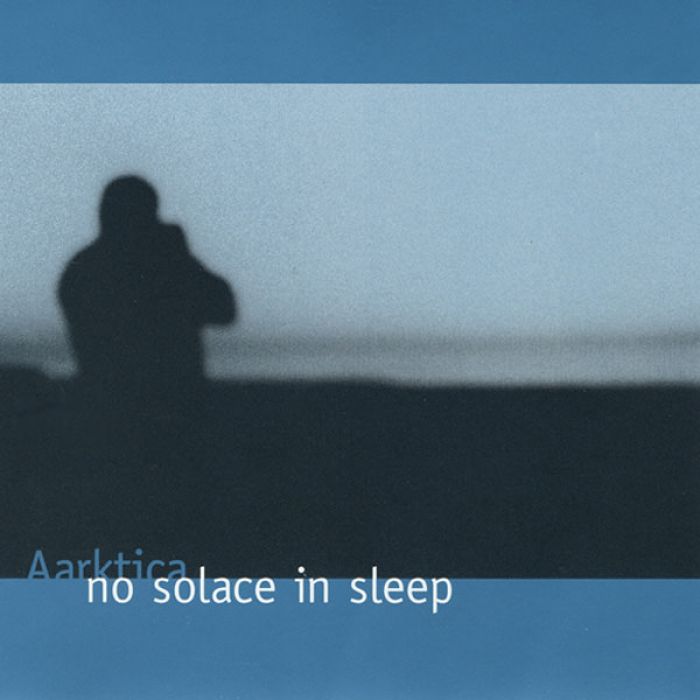No Solace In Sleep by Aarktica (Review)

Consider the vastness of Aarktica’s sounds which conjure up everything from distant Arctic wildernesses and brilliant auroras to the deepest ocean depths, and straight on out to the interstellar voids. It’s just a little bit ironic that these pieces had their start as the result of Jon DeRosa’s deafness. One might imagine that would limit musical output, or at least hinder it, but DeRosa’s work proves otherwise. This particular result, No Solace In Sleep, depicts a fascinating, sometimes beautiful, sometimes frighteningly intense world of sound.
Some may lump No Solace In Sleep in with other drone projects (e.g., Windy & Carl, Bowery Electric, Amp). But “drone” doesn’t feel quite right, as it implies something static and uninteresting. Although the sound palette that DeRosa employs throughout No Solace In Sleep is pretty sparse (and make no mistake, a great deal of it is composed of heavily treated guitar tones), there’s a surprising warmth and attention to detail there as well.
“Glacia” lives up its name, suggesting a somnambulistic journey across some frozen land north of the Arctic Circle. The intent is similar to that of Windy & Carl’s Antarctica album, but the results here have far more depth. “Indie” adds some slight glitch and a distant piano, while “You Have Cured A Million Ghosts From Roaming In My Head” finds gentle bell-like tones spiraling throughout the icy guitar shimmerings. And the sounds on “The Ice” hint at some icebound choir, or the winter wind playing tricks on your mind, making you hear ghostly voices where there are none.
The album culminates with the imposing “I Remember Life Above The Surface.” Here, DeRosa’s guitar becomes intimidating. Huge metallic shards of sound are sent scudding across the surface, only to distort and disintegrate before sinking into the blue-green depths. Soon, the listener is sinking too, diving deeper and deeper down into the abyss as all manner of distorted rumblings surround them. There’s a tangible anxiety in this place, a world of sound that most don’t willingly venture into.
It’s an intense experience, and not one you’ll soon forget. And like everything else on this album, it goes a long ways towards shattering any notions you might have of “drone” music.